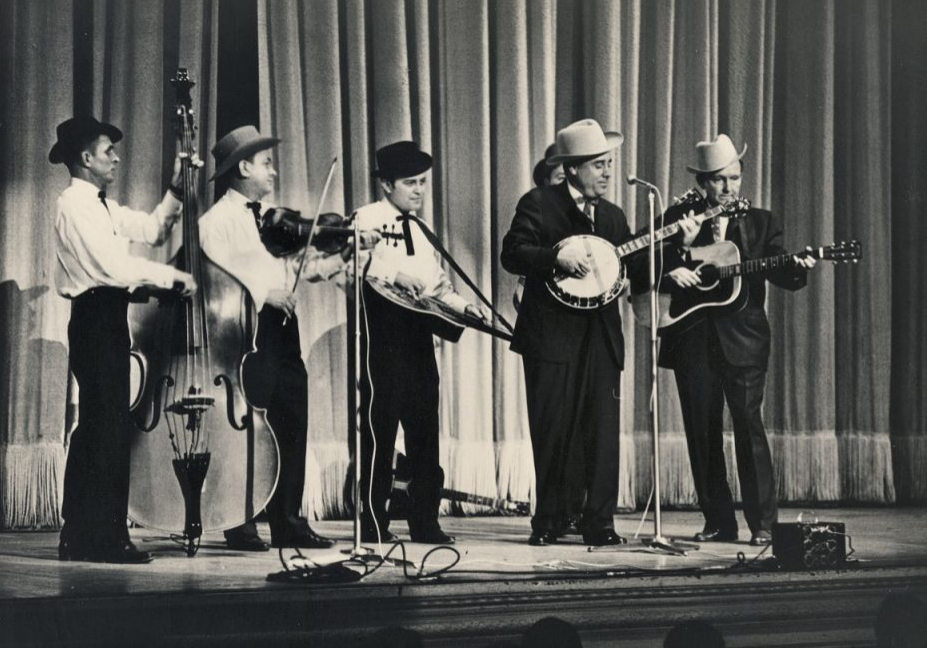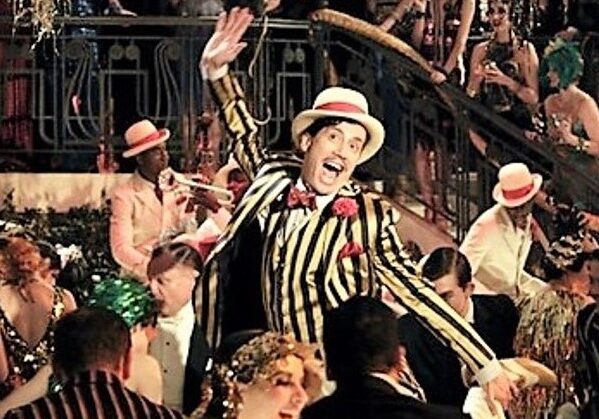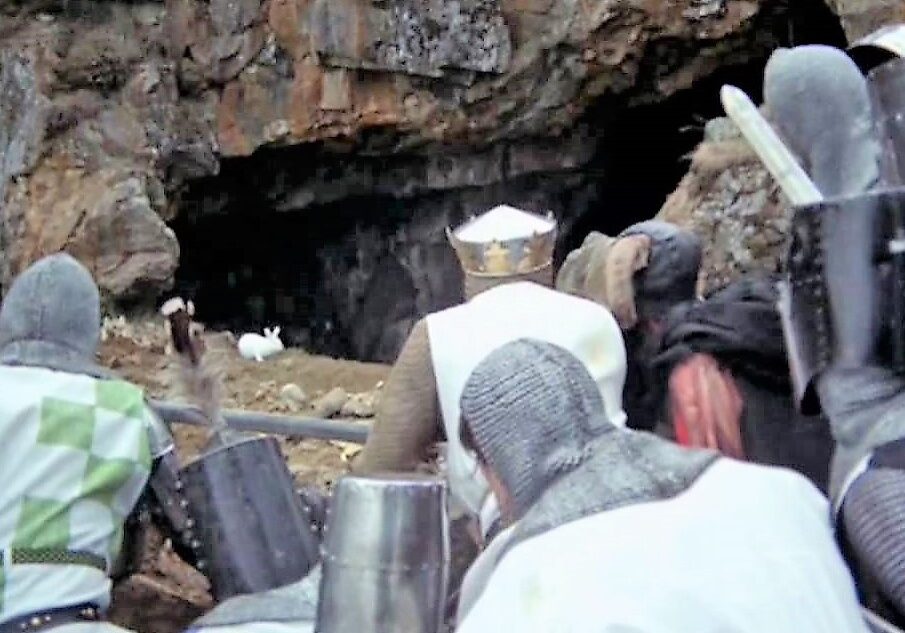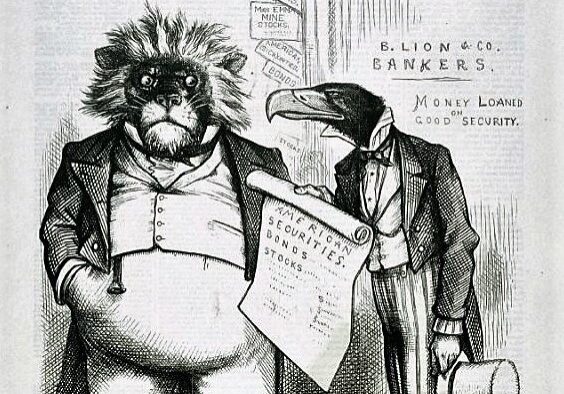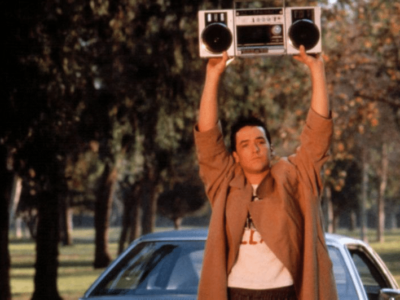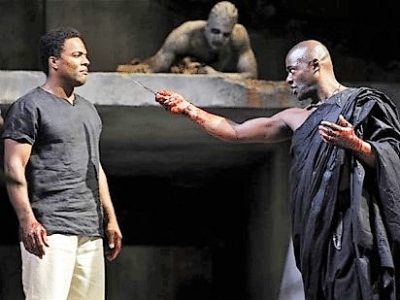Think of Perscient storyboards as a way to track narratives in real-time so you can see reality before the story catches up.
For example, here are five insights on the housing market from Matt Zeigler’s interview with Daryl Fairweather, chief economist at Redfin, that come alive with new meaning through the narrative-tracking power of Perscient storyboards.

Patterns are just repeating variables you happen to notice. Finding one nobody else has found before can be worth a lot. Harnessing one – whether for profit or for fun, can change lives – mine included. I’ve been thinking about this all week, and I want you to think about it too.
I started because Lawrence Yeo brought up Flying Lotus and Gaslamp Killer and Planet Asia on Just Press Record and that sent me down a west coast rabbithole.
I was playing my Alchemist and Dilated and other stuff. I was listening to Dilla and thinking about his influences. And then I started to notice what wasn’t there or on streaming.
Which, YouTube, it really is undefeated sometimes.
I must have put “Unassisted” by Rasco on so many mix CDs in the early 2000s. Part boom-bap, part pure rapping over a break energy, it’s just perfection. Shoutout to Fanatik (and Peanut Butter Wolf) for making it happen, even if streaming it was a challenge.
My favorite part about it is how simple both the beat and the rhyme scheme is. It’s not simple in a simplistic or childish way either. It’s simple in its comfort for what it is. The beat fits the words like a glove and vice versa. It’s profoundly streamlined execution.
Lawrence (and Bill Stephney) both talked about the magic of collage. DJ and sample culture originally got (incorrectly) labeled as ways to rip off recorded licenses and rights holders. That’s capitalism for you. It’s also a load of crap.
The culture is about collage. New things are being created. Take this song and what’s assisting it.
The drum and guitar samples come from Joe Farrell’s 1974 track “Upon this Rock.” It’s a great song, and it does its 1974 thing perfectly.
Read more at cultishcreative.com
The Trap of Validation. The Pursuit of Mastery | Bill Stephney & Lawrence Yeo JUST PRESS RECORD
In this powerful conversation, hip-hop legend Bill Stephney (who helped launch Def Jam and discovered Chuck D) and writer Lawrence Yeo explore why chasing external validation destroys creativity. Lawrence’s journey from Wall Street to the LA beat scene to writing taught him the difference between making and selling – two completely different jobs. Bill’s experience managing successful artists revealed that recognition, money, and celebrity rarely align, and you have to choose your focus. Both discovered that internal compass navigation and curiosity – which Lawrence beautifully defines as “gratitude for the unknown” – create more sustainable creative lives than any external scorecard ever could.
Grow Your Network: Bill Stephney Is A Culture-Shaping Legend You Need to Know
The man who discovered Chuck D in an Adelphi University cafeteria and helped launch Def Jam offers hard-won wisdom about navigating creative careers. Bill’s three essential questions for artists – do you want recognition, money, or celebrity? – reveal why most creative dreams fail: people assume all three go together when they usually work against each other. His willingness to say yes to becoming a music supervisor without knowing what that meant led to discovering Toni Braxton and creating multi-million selling soundtracks. Most importantly, his observation that pioneers don’t know they’re making history shows how authentic action creates lasting impact better than legacy-minded planning ever could.
Grow Your Network: Lawrence Yeo Is A Master of Internal Compass Navigation
Lawrence Yeo’s transition from finance to music to writing exemplifies what it means to follow your internal compass over external expectations. His “hundred hour test” – investing massive effort in a single story with zero audience – revealed whether he truly loved the craft itself. His work/life/legacy framework shows how to test creative projects without external validation, embrace curiosity as gratitude for uncertainty, and measure mastery only against your past self. The “cringe test” becomes a feature, not a bug – if you don’t feel embarrassed by old work, you’re not growing.
The Silent Majority: Why the Best Audiences Don’t Talk Back
The obsession with engagement metrics is missing the bigger picture. Drawing insights from Liquid Death’s Mike Cessario and iHeartMedia’s Bob Pittman, this post reveals that 90% of social media users are passive observers who form deeper parasocial relationships than the vocal 10% who comment and like. Radio still reaches 90% of America while Spotify reaches 20%, and people stick with the same two radio stations for decades. The real audience isn’t the one making noise – it’s the silent majority building genuine loyalty through consistent consumption. For creators, this means optimizing for the watchers, not the commenters.
Sometimes the mess is the message. Nassim Taleb’s insight that “the more rational we become, the more blind we are to our own irrationality” perfectly captured a week where a forgotten Tuesday post led to unexpected inspiration. The comfort of living with productive chaos beats the false security of systems that create dangerous blind spots. When everything appears to add up perfectly, that’s often when the biggest disasters strike. Better to expect a bit of mess and find inspiration in the gaps than to trust rational systems that hide their own irrationality.
Read more at cultishcreative.com
Do you know Bill Stephney? He’s the executive producer who helped launch Def Jam Records, discovered Chuck D in an Adelphi University cafeteria, and played a pivotal role in bringing Public Enemy, LL Cool J, and the Beastie Boys to the world. From college radio DJ to music supervisor for films like Boomerang (which launched Toni Braxton’s career), he’s been shaping culture for decades.
If not, allow me to introduce you. Bill represents something rare in creative industries: someone who consistently spots emerging talent and cultural movements before they explode. I wanted to connect with him because he embodies something I value deeply: the ability to recognize and nurture creative genius while navigating the complex balance between art, recognition, and commerce.
AND – extra big shoutout to prior Just Press Record guest, Greg Larkin (and the whole Punks in Pinstripes community), for helping make this episode happen. This is what networks do. Everything is cooler with cool friends.
Our conversation with Bill Stephney and Lawrence Yeo is LIVE now on the Just Press Record YouTube channel (and this Cultish Creative Playlist). Listen and you’ll hear incredible stories about hip-hop’s early days, the democratization of music creation, and why curiosity remains the mother’s milk of creativity.
Read more at cultishcreative.com
Do you know Lawrence Yeo? He’s the creator behind More To That, a writer who moved from Wall Street to the LA beat scene to become one of today’s most thoughtful voices on creativity and fulfillment. His new book “The Inner Compass” explores how to navigate between external validation and internal mastery.
If not, allow me to introduce you. Lawrence embodies the rare combination of financial acumen and artistic sensibility – someone who understands both spreadsheets and soul samples. I wanted to connect with him because he embodies something I value deeply: the courage to follow your internal compass even when external pressures pull you toward validation.
Our conversation is LIVE now on the Just Press Record YouTube channel (and this Cultish Creative Playlist). Listen and you’ll hear fascinating discussions about hip-hop sampling as creative genius, the democratization of art, and why curiosity is actually a form of gratitude for the unknown.
Read more at cultishcreative.com
Lawrence Yeo once committed 100 hours to write a single story. He just wanted to know what would happen if he put that much time and effort into something. No expectation, just curiosity.
Bill Stephney, after introducing Chuck D to Rick Rubin (and Hank Shocklee along the way but, don’t let me rabbithole you too on this story), helped manage Def Jam way back at the beginning of the label, where he learned to ask up and comers if they wanted recognition, money, or celebrity status – because they’d have to focus on one of the three. He learned not to have an expectation too, and he let the curiosity guide him.
Which – the external validation, as tempting as it is, of knowing your 100 hour project will succeed or basking in the glory of your status, wealth and fame, always (ALWAYS) succumbs to the internal reality of – did you get what you really wanted?
In Lawrence’s case, it eventually led him away from a career in music, a career on Wall Street, and into a career in writing (first book, “The Inner Compass” out now).
In Bill’s case, it eventually expanded from a career in music, to the business of music in movies, documentaries, and even high education.
The overlap is that the external validation ultimately means nothing, even if it’s where we want to focus. It really is a trap. And these two have both figured out how to stay out of it.
Read more at cultishcreative.com
The cure for the cancer of gun culture and police culture is not to be found in reform laws around guns and police, but in reform ideas around culture, ideas that create a new dimension of American society that rejects LARPing and LARPers alike.
Inflation
What made Bitcoin special is nearly lost, and what remains is a false and constructed narrative that exists in service to Wall Street and Washington rather than in resistance.
The Bitcoin narrative must be renewed. And that will change everything.
Sorry, we couldn't find any posts. Please try a different search.
Crypto
Recent Notes
Information Bottlenecks, Fake News and Boredom (by Silly Rabbit)
A new idea called the “information bottleneck” is helping to explain the puzzling success of today’s artificial-intelligence algorithms — and might also explain how human brains learn.
The Myth of Market In-Itself: Things That Matter #3, Pt. 1
Benjamin Graham famously said that the market is a voting machine in the short run, and a weighing machine in the long run. This is a right-sounding idea. It is also wrong. Behavior matters over every horizon.
The Jukebox Theory
We’re back with episode 24 of the Epsilon Theory podcast! Ben shares his thoughts on the inflation narrative and a new idea reminiscent of C-SPAN to make politics at every level more transparent and engaging.
Youth, Immutable Content, and the Secondhand Scoop (by Silly Rabbit)
This week’s Rabbit Hole column is more thematic with recent links that I found interesting around the topic of ‘news,’ on which Ben wrote the defining commentary of recent years with Fiat Money, Fiat News.
Mailbag! Fall 2017 Edition
Back by popular demand, it’s the Epsilon Theory Mailbag! “Always Go To the Funeral” and “The Arborist” Another rifle shot to the crux of the…
A Taxonomy of Humans, Evolution and Aliens (by Silly Rabbit)
Leonid Moroz has spent two decades trying to wrap his head around a mind-boggling idea: even as scientists start to look for alien life in other planets, there might already be aliens, with surprisingly different biology and brains, right here on Earth. Those aliens have hidden in plain sight for millennia…
Before and After the Storm or: Make America Good Again
What does the path of history tell us? What does the aftermath of one of America’s greatest natural disasters and human tragedies tell us? What can we do to survive and escape a Competitive Game that doesn’t allow us to pull away from the table? If you’re reading this, you’re probably in the investment industry, or at least have an interest in financial markets. If you’re in the investment industry or in the financial markets, you like to win. So you’re not going to like my answer.
We play. And we lose.
Always Go To the Funeral
There’s a pose that very sick farm animals sometimes take when they’re near death, where they lie down and twist their head way back into their shoulder in a very unnatural way. It’s an odd sight if you don’t know what it signifies, a horrible sight if you do.
Both the Republican Party and the Democratic Party are starting to twist their heads back into their shoulders. I don’t know if it’s too late to save them or not, but I’m increasingly thinking that it is. We need to start thinking about the funeral, who’s going to speak, and what they’re going to say.
Revenge of the Humans, Emojis & Mushrooms (by Silly Rabbit)
Portfolio Manager — Of all the roles this is where I think things really need to change in terms of who sits in this seat. It can no longer be hedge fund bros, they simply won’t survive here. Nor will the pure gunslingers and tape readers, gone. And you certainly don’t want the pure quants sitting in this seat. PMs of the future are going to be far more interpersonal and process driven….
Data Access Battles, Creative Thinking & Full Script AI (by Silly Rabbit)
A couple of weeks back I shared a link to the story of ImageNet and the importance of data to developing algorithms. Ars Technica reports on two ‘at the coalface’ battles over data access with HiQ and Power Ventures fighting with LinkedIn and Facebook over data access. I’m not advocating a position on this but, to be sure, small — and currently obscure — court cases like these will, cumulatively, end up setting the precedents which will have a significant impact on the evolution and ownership of powerful algorithms that are increasingly driving behavior and economics.
The Arborist
In Part 4 of the Notes from the Field Series, Ben identifies how the natural lines of a tree and shaping the tree to follow those lines over time is a lot like shaping a portfolio.
You Still Have Made a Choice: Things that Matter #2
Diversification is clearly one of the things that matter. Unfortunately, most investors pursue the meme of diversification! instead of the real thing, and end up with a false sense of security and inefficiency.
AI BS Detectors & the Origins of Life (by Silly Rabbit)
Confidence levels for the Social and Behavioral Sciences, Claude Berrou on turbo codes and informational neuroscience, and thermodynamics in far-from-equilibrium systems.
Horsepower
There is no animal more important to the ascendancy of Western Civilization than the horse, and no invention more important than the horse collar. After all nothing shapes history like advances in productivity. Part 3 of Ben’s Notes from the Field series here.
Programmable Money & Auto Public Offerings (by Silly Rabbit)
Programmable money, ImageNet: the data that changed AI research, Auto Public Offerings and the paradox of historical knowledge.
Mailbag! Midsummer 2017 Edition
Back by popular demand, it’s the Epsilon Theory Mailbag! Today’s edition covers notes from the past two months including “Tell My Horse”, “Post-Fed Follow-Up”, “Notes…
Whom Fortune Favors: Things that Matter #1, Pt. 2
Part 1 of this note highlighted the supremacy of the risk decision in portfolio construction. In this follow-up, Rusty observes that many investors may be assuming that the natural risk of asset classes is “right” for them.
Algorithmic Complexes, Alpha Male Brains, and Winnie the Pooh (by Silly Rabbit)
Massively complex complexes of algorithms, AI vs. human performance, the Alpha male brain switch and explaining vs. understanding.
Where’s the Punch Bowl?
On episode 23 of the Epsilon Theory podcast, we’ve assembled the all-star team — Jeremy Radcliffe (Salient’s President), Rusty Guinn (Salient’s EVP of Asset Management), Neville Crawley (Founder & CEO of Engram Labs) and of course, Dr. Ben Hunt — to discuss whether we are at the inflection point when the proverbial punch bowl is taken away, and, as investors, what we do now.
Gradually and Then Suddenly
The question isn’t whether the barge of monetary policy has turned around and embarked on a tightening course — it has — the question is how fast that barge is going to move AND whether or not the market pays more attention to the actual barge movements than what the barge captain says.

Patterns are just repeating variables you happen to notice. Finding one nobody else has found before can be worth a lot. Harnessing one – whether for profit or for fun, can change lives – mine included. I’ve been thinking about this all week, and I want you to think about it too.
I started because Lawrence Yeo brought up Flying Lotus and Gaslamp Killer and Planet Asia on Just Press Record and that sent me down a west coast rabbithole.
I was playing my Alchemist and Dilated and other stuff. I was listening to Dilla and thinking about his influences. And then I started to notice what wasn’t there or on streaming.
Which, YouTube, it really is undefeated sometimes.
I must have put “Unassisted” by Rasco on so many mix CDs in the early 2000s. Part boom-bap, part pure rapping over a break energy, it’s just perfection. Shoutout to Fanatik (and Peanut Butter Wolf) for making it happen, even if streaming it was a challenge.
My favorite part about it is how simple both the beat and the rhyme scheme is. It’s not simple in a simplistic or childish way either. It’s simple in its comfort for what it is. The beat fits the words like a glove and vice versa. It’s profoundly streamlined execution.
Lawrence (and Bill Stephney) both talked about the magic of collage. DJ and sample culture originally got (incorrectly) labeled as ways to rip off recorded licenses and rights holders. That’s capitalism for you. It’s also a load of crap.
The culture is about collage. New things are being created. Take this song and what’s assisting it.
The drum and guitar samples come from Joe Farrell’s 1974 track “Upon this Rock.” It’s a great song, and it does its 1974 thing perfectly.
Read more at cultishcreative.com
The Trap of Validation. The Pursuit of Mastery | Bill Stephney & Lawrence Yeo JUST PRESS RECORD
In this powerful conversation, hip-hop legend Bill Stephney (who helped launch Def Jam and discovered Chuck D) and writer Lawrence Yeo explore why chasing external validation destroys creativity. Lawrence’s journey from Wall Street to the LA beat scene to writing taught him the difference between making and selling – two completely different jobs. Bill’s experience managing successful artists revealed that recognition, money, and celebrity rarely align, and you have to choose your focus. Both discovered that internal compass navigation and curiosity – which Lawrence beautifully defines as “gratitude for the unknown” – create more sustainable creative lives than any external scorecard ever could.
Grow Your Network: Bill Stephney Is A Culture-Shaping Legend You Need to Know
The man who discovered Chuck D in an Adelphi University cafeteria and helped launch Def Jam offers hard-won wisdom about navigating creative careers. Bill’s three essential questions for artists – do you want recognition, money, or celebrity? – reveal why most creative dreams fail: people assume all three go together when they usually work against each other. His willingness to say yes to becoming a music supervisor without knowing what that meant led to discovering Toni Braxton and creating multi-million selling soundtracks. Most importantly, his observation that pioneers don’t know they’re making history shows how authentic action creates lasting impact better than legacy-minded planning ever could.
Grow Your Network: Lawrence Yeo Is A Master of Internal Compass Navigation
Lawrence Yeo’s transition from finance to music to writing exemplifies what it means to follow your internal compass over external expectations. His “hundred hour test” – investing massive effort in a single story with zero audience – revealed whether he truly loved the craft itself. His work/life/legacy framework shows how to test creative projects without external validation, embrace curiosity as gratitude for uncertainty, and measure mastery only against your past self. The “cringe test” becomes a feature, not a bug – if you don’t feel embarrassed by old work, you’re not growing.
The Silent Majority: Why the Best Audiences Don’t Talk Back
The obsession with engagement metrics is missing the bigger picture. Drawing insights from Liquid Death’s Mike Cessario and iHeartMedia’s Bob Pittman, this post reveals that 90% of social media users are passive observers who form deeper parasocial relationships than the vocal 10% who comment and like. Radio still reaches 90% of America while Spotify reaches 20%, and people stick with the same two radio stations for decades. The real audience isn’t the one making noise – it’s the silent majority building genuine loyalty through consistent consumption. For creators, this means optimizing for the watchers, not the commenters.
Sometimes the mess is the message. Nassim Taleb’s insight that “the more rational we become, the more blind we are to our own irrationality” perfectly captured a week where a forgotten Tuesday post led to unexpected inspiration. The comfort of living with productive chaos beats the false security of systems that create dangerous blind spots. When everything appears to add up perfectly, that’s often when the biggest disasters strike. Better to expect a bit of mess and find inspiration in the gaps than to trust rational systems that hide their own irrationality.



